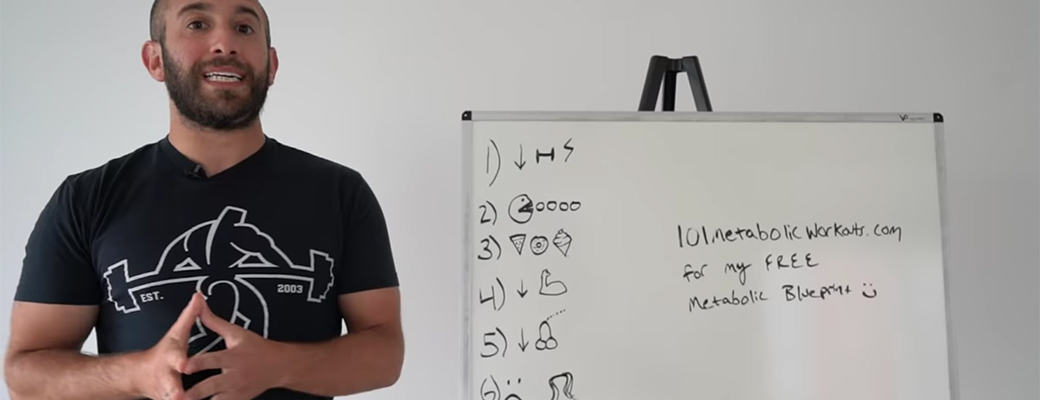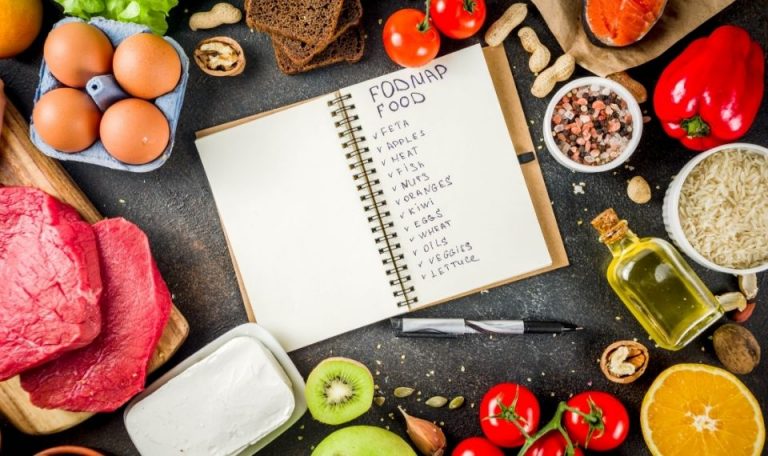Before we move on to the first character on my board, I want to talk about one important question: is it even possible to eat too few calories? The answer is yes.
I have a separate video about this, in short: yes, it is possible to eat so little that your metabolism is disturbed, you develop eating disorders and other joys. There’s all sorts of science about it, check it out.
But that’s not what we’re talking about now – when you eat too little to lose weight. That’s a different story. Most people aren’t undernourished. It’s obvious. Look at our world and the obesity pandemic. We’ve just been sold some bullshit called starvation mode.
Many people are misled when they are told that they gain weight because they eat too little. If your weight keeps increasing and increasing, you are definitely eating too much.
Many people now think that if you eat “too few” calories, your body switches into “starvation mode” and struggles to cling to your fat. And you end up even gaining more. That, my friends, is utter nonsense. It doesn’t work like that. No one gets fat by eating too little.
Signs that you’re really eating too little.
Let’s turn to my hieroglyphics.
1. here we have a down arrow, indicating reduction;
a dumbbell, a weight, but not just any weight, but the weight of your body; and a lightning bolt, that is, very fast. All together, you’re losing weight too fast. So you are eating too little.
Back to the intro for a moment: this doesn’t mean you’re not losing fat or have switched to ‘starvation mode’. And there are plenty of reasons not to aim to lose weight too quickly.
If the weight comes off too fast, it’s likely
– you’ll be very, very hungry,
– your strength will decrease,
– you’ll lose valuable muscle mass,
and – most importantly – it’s an unstable method that produces unstable results.
If you lose weight too fast, you are unlikely to be able to maintain your new weight afterwards. For example, you’ve drastically cut calories, completely eliminated a macronutrient or done something else you won’t be able to do for the rest of your life. Juice cleanse, detox, keto, whatever. If you can’t imagine yourself doing the same thing in a month, three months, a year or five years, then the results of it all won’t stick with you either.
So, how fast is ‘too fast’? Half a kilo a week or a couple of kilos a week?
I’ll first say about the normal range: from a couple of hundred grams to a kilo a week. That’s the spread.
If you have a lot of fat deposits, you can lose a kilo a week as well. And when you get slimmer, the count will go to hundreds of grams.
Why don’t you want to lose more quickly? Firstly, you want sustainable results, and secondly, by getting rid of unpleasant fat you do not want to lose your beautiful muscles. So 200-1000 grams a week is a great pace.
If you lose weight faster, losing 1.5 kilos, 2 or more per week, you are probably consuming too little. It should be stipulated that if this is your first or second week of dieting and you are very much overweight, you can lose 2-3 kilos.
But if you have already gone week 4-5-6th, and the weight is flying off at the same rate, it is better to slow down and analyze your diet. Will you be able to maintain this result in the future? Maybe add calories a little and lose weight more steadily?
2. The next character looks like a toothy Pac-Man who wants to gulp something down.
That was me trying to portray a beastly hunger. Anyway, point 2 – if you’re constantly extremely hungry, you’re obviously eating too little.
Let me be clear: when you intend to get rid of excess fat, the only way is a caloric deficit. And on a deficit you will face hunger, that’s the norm! Hunger won’t just manifest, it will intensify. And that sucks. That’s why no one likes diets. But there’s a difference between a small intensification of hunger and constant chronic acute hunger. One that won’t leave you alone. Keeps you awake. Causes you pain. You just think about food all the time.
Again, if you don’t stick with the methods, you won’t stick with the results. Many people think that in order to lose weight you have to eat very little – 800, 1000, 1200 kcal – otherwise you won’t achieve anything. This is not the case. If you consume only 800-1200 kcal, the hunger will be brutal. And, of course, it is impossible to sustain it.
So don’t go to extremes – 800 kcal, then gluttonous fast food.
Instead look for golden mean – 1500, 1600 or 1700 kcal. Yes, hunger will manifest itself then too, but you’ll be able to last long enough before moving on to a maintenance phase.
3. Moving on to the third point, here I’m proud of myself
I managed to portray pepperoni pizza perfectly. It’s the best kind of pizza. No, pineapple and pizza don’t mix.
So, pizza, doughnut, ice cream. The point I’m trying to make is that you shouldn’t be obsessed with food. If all you’re thinking about is sharpening something, you’ve got a problem.
They try very hard, put all their energy into training and dieting, but unfortunately, they often end up with eating disorders.
Throughout all the preparation for going on stage, all they think about is that after the performance they will finally binge on all the things they have been depriving themselves of. They make huge lists of the foods they’re dreaming of. They watch all kinds of cooking channels, scour YouTube, like all the videos where normal people just eat whatever they want.
If that’s all you think about, adding to your long list, then clearly you are eating too little.
4. Also an obvious point: strength is constantly decreasing. The key word is ‘constantly’.
This is critical. You have to maintain (if not increase) your strength levels while dieting, and you have to keep your maximum muscle mass.
Losing muscle on a diet is a huge mistake many people make when they stop strength training, under-protein or under-calorie. Yes, you need to be in some deficit, but not so much that you lose invaluable muscle tissue.
There is the other extreme: a person comes to the gym, “deficient” for 72 hours, and discovers that he has weakened. Oh my God! I’m going to lose all my muscles! Calm down! One unsuccessful workout does not mean that a hell of a deficit burns up all your muscle mass.
That’s why I stress the word ‘consistently’ – for a month, two, three.
Even on a surplus, even when you eat too much, there are bad days when you lift less than usual. It’s a natural part of the process.
In short, when you’re on a deficit, one or two bad workouts won’t solve anything, won’t determine anything and won’t mean anything. You won’t lose your precious muscles because of it.
But if your strength drops consistently – why it’s important to keep a training diary and collect personal statistics – over the course of a month, for example, then malnutrition is probably already the problem.
5. Getting to the most important point you stare at all the time.
Down arrow near the penis – decreased libido. Well, it applies to vaginas as well, but I was afraid to do it. In short, it applies to all 125 genders.
If your libido is permanently low on a diet, you’re what? That’s right, you eat too little.
Your body doesn’t want a deficit, it resists, it doesn’t give up valuable fat because it’s been sharpened by evolution to conserve reserves. So when you ‘smartly’ put your body on a deficit, it fights as hard as it can: it makes you hungrier, deprives you of energy, even spoils your mood – so that you wake up and give up this stupid deficit.
And it’s the same with libido – your body screws it up just a little bit to reason with it.
If you used to be burning with desire and now you’re somehow not so interested, you’re probably eating too little.
This is, of course, a serious issue to discuss separately, do research, a normal sex life is very important, many people shy away from talking about it and all that… Anyway, if you’ve noticed that interest has somewhat erased, then you might be undernourished.
6. And the last point is mood deterioration, hair loss and, what I haven’t tried to draw out, menstrual cycle problems.
So, mood is down, energy is down, hair is falling out, don’t look at me, it’s genetics, I’m not on the dryer, honestly. Anyway, all these joys also hint at a lack of tasty calories.
If your hair is falling out and your cycle is disrupted (when you go on a diet), then you’re definitely eating too little. Full stop. Eat more. Full stop. This is very important. I will caveat that this doesn’t happen very often, it’s pretty hard to starve yourself to this state, but one is capable of a lot.
I want to stop fooling around here and reiterate very seriously: if you’re losing your hair and your cycle because you’re dieting, you’re probably on the verge of it. It’s not worth it. Once again, it’s not worth it. Trust me. You’re dieting too hard.
Going back to your mood and energy, again, it’s possible to feel slightly sad on a diet, you’re not as joyful as usual, that’s normal. The longer the deficit, the sadder, but still not to the point of depression.
If you are constantly irritable, chronically tired – and all this is unusual for you – then something has gone wrong. And, again, unstable methods produce unstable results.
I don’t care if you’ve become super-relaxed and seen new abs – if you’re unhappy, if you’re not feeling well, then you won’t care about those gains either. It doesn’t matter how good your instagrams are if you hate yourself. If you just hate your life.
Do what makes you feel good. Things that you can sustain. If you’re sad and exhausted, losing your hair and your menstrual cycle on your super diet, then it’s not good for you. You are eating too little.



